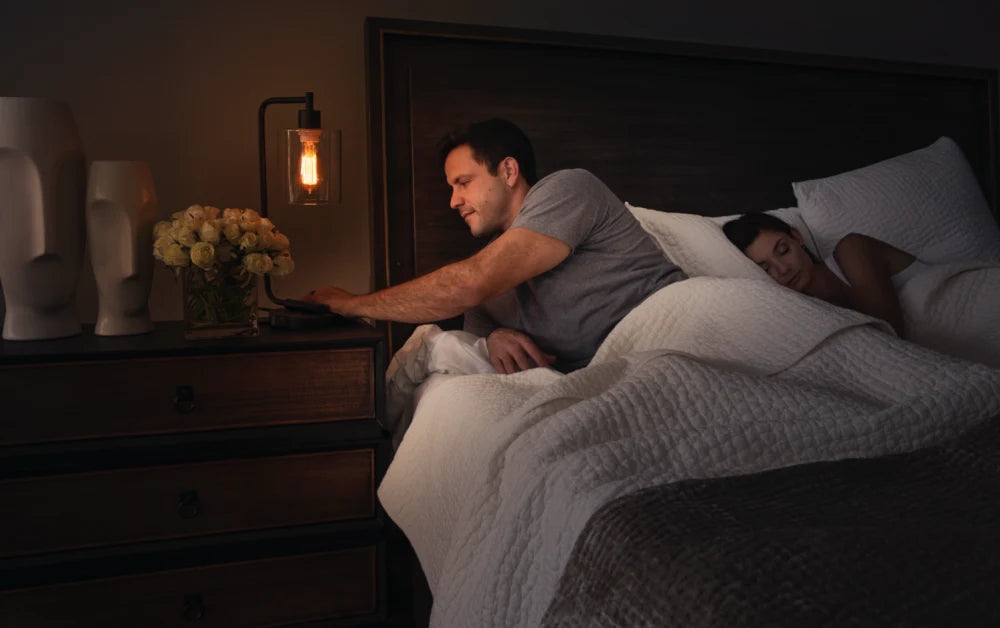If you’re someone who has trouble sleeping, you’ve probably tried it all. No screen time before bed, exercise, reading, counting sheep (which, by the way, has got to be the most boring method), you name it. Different things work for different people, but the key here is to try and find something that relaxes you to the max. For some of us, counting sheep might end up being more aggravating than relaxing, so we can scratch that off the list. Same thing can go for reading: who wants to try to fall asleep when our mind is racing trying to figure out a cliffhanger?
Luckily for the slight insomniacs among us, there’s a good amount of evidence pointing towards sounds being used to obtain excellent sleep. No, we’re not talking about your favorite Metallica album (although if that’s like birdsong to you, go for it). Our brain is constantly trying to determine how threatening certain sounds are: high-pitched and sudden noises freak us out, rhythmic noises keep us calm and assure us that nothing out of the ordinary is going on. This is why the sound of a fan at night is nice, but the dog barking erratically keeps you up. Go figure.
There are a myriad of different sounds out there that can be used to induce relaxation and fall asleep faster, and with modern technology it’s incredibly easy to try out different noises or music that might help you get the most restful sleep you can imagine. Check out our picks for the most relaxing noises out there.
White noise
When it comes to relaxing sounds, white noise is the absolute king. On a technical level, white noise is a combination of pretty much every frequency, all being played at once and at the same intensity. It’s incredibly constant and rhythmic in a certain way, though not rhythmic enough that you’ll start tapping your foot. It also does an excellent job of cancelling out other noises that you might hear, making it perfect for avoiding a sleep partner’s snoring or a dog barking.
But don’t take our word for it! White noise has been studied by researchers at Brown University, who noted that ICU patients were able to sleep more soundly and with less interruptions at night when listening to white noise compared to sleeping without it. The masking effect of white noise’s frequencies blocked out the load, sudden noises of the hospital.
In short, white noise is pretty much the best thing ever for a restless sleeper. There are a ton of smartphone apps out there that can hook you up (just give a quick search for “white noise” in your app store). If you’re less technologically inclined, a normal fan can do the trick, although there are specific fans out there for sleeping, too. Spotify, Apple Music and other streaming services also have excellent recordings that are hours and hours long and just white noise. Pop some headphones in or keep your phone next to your bed and drift off peacefully.
Other colors of noise
Here’s a quick footnote on white noise. White isn’t the only color of constant noise out there: blue, pink and brown are also favorites of some sleepers. Some studies say that pink noise helps with your memory and increases time spent in deep sleep cycles. It sounds a lot like white noise, but a bit softer. Brown noise is a bit more heavy on the low-end. Blue noise is a bit more polarizing and high-pitched, but if you don’t mind that it can be really excellent at cancelling out other noises.
Try out some of the different colors on most sleep apps or streaming services, and if you’re in love, there are plenty of fans and other sleep-aid products out there that replicate the sound without needing your phone.
Water sounds
Ever cuddle up in a warm bed on a rainy night and feel the coziest feeling known to humanity? Well, you’re not alone. Humans are known to be incredibly relaxed by all kinds of water noises due to their constant nature with only a few very gradual changes. Water naturally relaxes us (it’s the source of all life on earth, after all), and we feel a real connection to it. Ocean, rain or stream sounds can be really excellent in getting us in that trance-like state we need to fall asleep. If white noise isn’t really your thing, water might do the trick perfectly. Once again, apps and streaming services are your friend here.
Human voices
This one might sound a bit weird at first, but it really works for some people. Vocally guided meditation is a common sleep aid, and we’ve all probably fallen asleep at one point to a movie or a podcast with a nice, slow-talking narrator. If you can find a recording of someone talking (maybe an e-book, or a podcast could work too) that really relaxes you, it could be the perfect thing for falling asleep. We don’t recommend asking someone to read you bedtime stories if you’re an adult, but hey, whatever works!
Calm music
I know we said to write off the Metallica, but that doesn’t mean all music is wrong for falling asleep. Low-tempo music without a ton of volume changes can be great for falling asleep, but you’ll want to make sure that the album isn’t gonna randomly change once you’re out and wake you up with your heart racing. Some of the ideal genres for sleep include ambient and drone (which itself can get pretty close to white noise), but you can really use anything as long as it works for you.
Interestingly, some clever Internet folk have even realized that they can combine music with some of the above techniques to offer the ultimate relaxation audio file. All across Youtube are looped versions of relaxing songs with rain sounds added to them. While we don’t know of any scientific research on this phenomenon, it doesn’t sound like such a bad idea.
The main take-away from this quick look at sleep sounds is that noise, even though it may be counter-intuitive, really can help you fall asleep. Everyone likes different things, so it’s best to experiment with a couple different types of sounds to see what really helps you fall asleep fast and hard. When all else fails, though, white noise has got your back.

